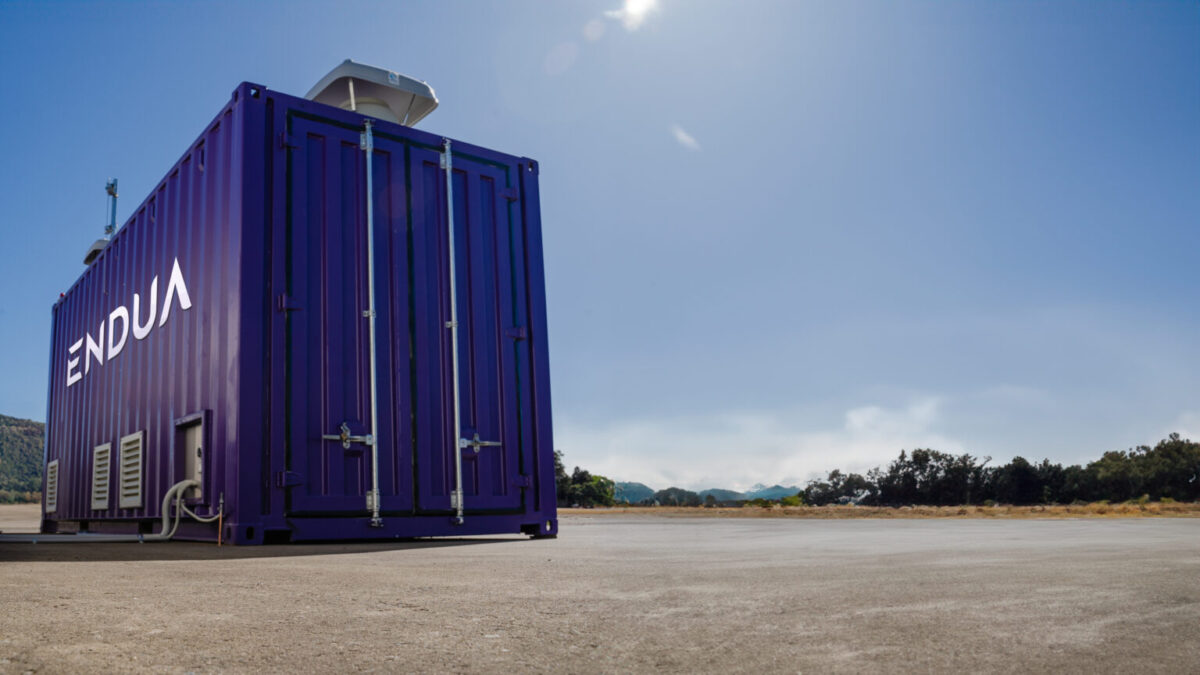Brisbane-based startup Endua has unveiled its first hydrogen battery in the Brisbane suburb of Archerfield, near its headquarters, as a testing platform. Endua’s hydrogen power bank uses electrolysis technology developed by the Commonwealth Scientific and Industrial Research Organisation (CSIRO) and is capable of powering 100 kW per unit.
The Archerfield hydrogen battery provides enough power to drive a water pump, farm shed or standalone telecom infrastructure, Endua said. The solution is designed to replace diesel generators in off-grid and remote locations, with the company listing farms, telecoms infrastructure, and microgrid communities as potential users.
Endua’s hydrogen battery works by using renewable energy to power the small-scale, CSIRO-developed polymer electrolyte membrane (PEM) electrolyzer. The hydrogen is then stored as a compressed gas, and can be converted back to electricity on demand via the internal fuel cell.
“Our power banks mean we can decouple standalone and microgrid power systems from fossil fuel-generated diesel and provide a cheaper long-term solution than batteries,” said Endua CEO Paul Sernia.
Popular content
The company said the hydrogen battery is highly configurable and can be scaled according to on-site demand due to its modular design.
Australia, especially Western Australia, has been rapidly deploying solar-driven standalone power stations and microgrids, as these technologies offer significant cost savings compared to maintaining poles and wires or diesel generators. However, these solutions almost always include a small diesel backup generator.
In May, the company said that it had raised more than AUD 11.8 million to scale up its hydrogen battery solution. Investors in the raise included the Queensland Investment Corp., Melt Ventures, Ampol, and the CSIRO.
Endua is currently in the process of commercializing the newly unveiled 100 kW power bank.
This content is protected by copyright and may not be reused. If you want to cooperate with us and would like to reuse some of our content, please contact: editors@pv-magazine.com.



1 comment
By submitting this form you agree to pv magazine using your data for the purposes of publishing your comment.
Your personal data will only be disclosed or otherwise transmitted to third parties for the purposes of spam filtering or if this is necessary for technical maintenance of the website. Any other transfer to third parties will not take place unless this is justified on the basis of applicable data protection regulations or if pv magazine is legally obliged to do so.
You may revoke this consent at any time with effect for the future, in which case your personal data will be deleted immediately. Otherwise, your data will be deleted if pv magazine has processed your request or the purpose of data storage is fulfilled.
Further information on data privacy can be found in our Data Protection Policy.